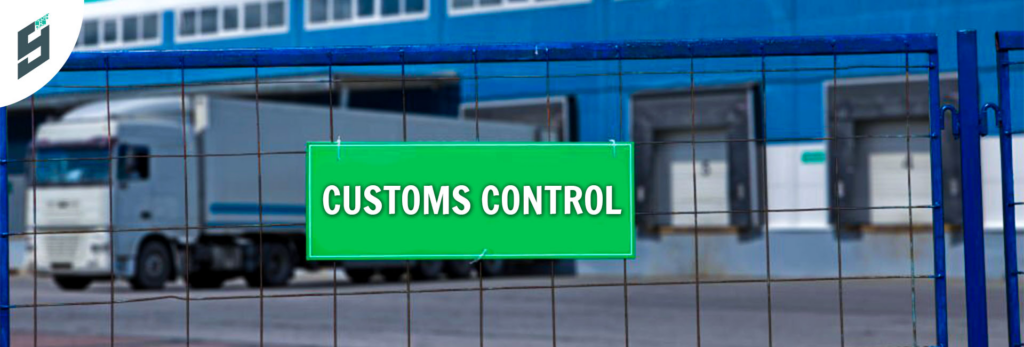
Freight Forwarding
Freight forwarding is a process that helps businesses and individuals transport goods from one location to another, either domestically or internationally. It is a crucial part of the logistics industry, as it allows for the efficient and cost-effective movement of goods around the world.
Several different types of carriers can be used in freight forwarding, each with its strengths and weaknesses. The most common types of carriers used in freight forwarding include Air, Ocean, & Land.
Table of Contents
Customs Clearance in Freight Forwarding
Customs clearance is a process required by governments for goods that cross international borders. The purpose of customs clearance is to verify information about the goods, including their origin and value, as well as applicable duties or taxes due on the item. Custom clearance is an important part of the freight forwarding process, as it allows goods to move seamlessly through international borders.
Steps Taken by Freight Forwarders
Steps Taken by Freight Forwarders in the Customs Clearance Process include,
1. The initial step in customs clearance is obtaining documents such as bills of lading, commercial invoice, packing list, and other documentation necessary for the export or import of goods. This documentation should be provided to the freight forwarder who will take care of all regulatory requirements.
2. The freight forwarder will then prepare the necessary paperwork and declarations to be submitted to Customs. This will include filing an import or export declaration depending on whether the goods are entering or exiting the country.
3. Next, the freight forwarder will submit all relevant documents, including invoices, packaging lists, bills of lading, and any other necessary paperwork to Customs.
4. Customs will then review all the documents provided and verify that the information is accurate and complete.
5. Once the documents are approved by Customs, payment of applicable duties or taxes must be made before goods can move freely into or out of a country.
Importance of a Smooth & Efficient Customs Clearance Process for International Shipping
A smooth and efficient customs clearance process is essential for international shipping. Without a proper customs clearance process, goods could potentially be stuck in port or held up at borders, leading to delays and extra costs. An experienced freight forwarder can help ensure that any necessary documents are reviewed by Customs quickly and accurately, allowing for the safe passage of goods across borders.
Customs clearance is an important process for individuals, businesses, and governments all over the world. It is used to ensure that goods entering a country meet the legal requirements of that nation, and are not dangerous or illegal. It helps to protect a nation’s economy and citizens, while also allowing individuals and companies to access goods from other countries.
- Importance for Freight Forwarders
For freight forwarders, customs clearance is important because it determines whether or not their shipments will be accepted into the country. Without it, shipments may be delayed, confiscated, or even destroyed, resulting in a financial loss. For businesses, customs clearance is essential for keeping supply chains running smoothly and ensuring that products arrive on time. Customs clearance can also help businesses avoid fines for not complying with the laws of the country they are shipping to.
- Importance for Governments
For governments, customs clearance is an important tool for preventing illegal activities such as smuggling, tax evasion, and money laundering. It also helps to protect domestic industries by enforcing tariffs on certain goods and limiting imports. Additionally, customs clearance can help governments collect revenue through duties and taxes, which can then be used to fund public services.
In short, customs clearance is an important process that helps individuals, businesses and governments ensure the safety and security of their goods while helping to protect national economies and citizens.
Steps Involved in the Customs Clearance Process
The process can vary depending on the country and type of goods being imported or exported, but generally includes the following steps:
1. Pre-Shipment Documentation & Classification of Goods
Under the Harmonized System (HS) code are required before goods can be cleared by Customs. All shipments must also include proof of origin and value, such as an invoice or packing list. Documentation should be prepared carefully to make sure that it is complete and accurate.
Freight forwarders and customs brokers can assist when preparing documentation, helping to ensure that it meets all the requirements. This helps to prevent delays at Customs, which can be costly and cause disruption to supply chain management. They can also help with the classification of goods and obtaining any other required permits or licenses.
Once documents have been submitted to Customs, freight forwarders can track progress throughout the clearance process and keep buyers and suppliers informed of any updates or changes. This helps to reduce the frustration of waiting for goods to be cleared and prevents potential delivery delays.
2. Submission of documents and payment of duties and taxes
When importing goods, it is important to be aware of the de minimus value, which is the minimum threshold for taxable goods. If the value of your shipment exceeds this threshold, it may be subject to import duties. Customs authorities are responsible for collecting these taxes and duties.
Utilizing the services of a customs broker can help ensure that all regulations are met and that any necessary paperwork, duties, and taxes are taken care of to avoid delays in shipping. Additionally, a customs broker can provide guidance and assist in identifying trade agreement opportunities.
3. Physical examination of goods and clearance by customs authorities
Using a customs brokerage service can provide several benefits for your business. They will handle all the paperwork, duties, and taxes for your shipments, ensuring that everything is in order and compliant with customs regulations. This will help avoid delays and ensure that your products are shipped to their destination on time.
A customs broker will also verify that your company is complying with customs regulations, which can help you avoid potential legal issues. They can also help you retain more money by guiding trade agreement opportunities. Furthermore, a customs broker can help you avoid shipment problems and ensure that your company is taking advantage of all available trade opportunities.
4. Release of goods and post-clearance audit
Once all documentation, duties, and taxes have been paid, and the goods have been examined, Customs will release the goods for import. This allows the importer or their agent to take possession of the goods and begin the process of distribution or sale.
In some cases, Customs may conduct a post-clearance audit to ensure that the correct duties and taxes were paid and to check for compliance with regulations. This step is important to ensure that all importers are following the rules and paying the correct amount of taxes.
5. Exportation
After the goods have been cleared and received by the importer, the exporter can then ship the goods to the destination country. This step is important for the exporter to ensure that the goods are being shipped to the correct location and that they meet all the requirements of the destination country.
6. Arrival at destination
Once the goods arrive at the destination country, the importer or their agent will repeat the customs clearance process to ensure that the goods comply with the regulations of that country. This step helps to ensure that the goods are allowed to enter the country and that the importer is aware of any taxes or duties that need to be paid.
Factors that can impact the customs clearance process
Several factors can impact the customs clearance process, including:
- Incorrect or incomplete documentation
It can delay the customs clearance process and can even lead to shipment rejection. A customs broker can help to ensure that all documents are accurate, complete, and in compliance with import laws. Payment of duties and taxes is also an important factor for successful customs clearance. If applicable, these charges must be paid before a shipment will be allowed into the country.
- Restricted or prohibited goods
The process for customs clearance for imports and exports can vary as the regulations for each are different. In international trade, the seller typically handles the export customs clearance process and the buyer is responsible for the import customs clearance process. However, if you are shipping goods within your own business, you may act as both an exporter and importer. A customs broker can assist with understanding the requirements and navigating the customs clearance process for both import and export shipments.
Conclusion
In conclusion, the customs clearance process is an important step in the freight forwarding process. It is a process of obtaining permission to pass a point of entry into a country and it can vary depending on the country and type of goods being imported or exported. The process includes pre-shipment documentation and classification of goods, submission of documents and payment of duties and taxes, physical examination of goods, clearance by customs authorities, the release of goods, post-clearance audit, exportation, and arrival at destination.
The role of freight forwarders and customs brokers is crucial in the customs clearance process by assisting with documentation, the classification of goods, obtaining permits or licenses, and tracking progress throughout the clearance process. They can also provide guidance and assist in identifying trade agreement opportunities.


